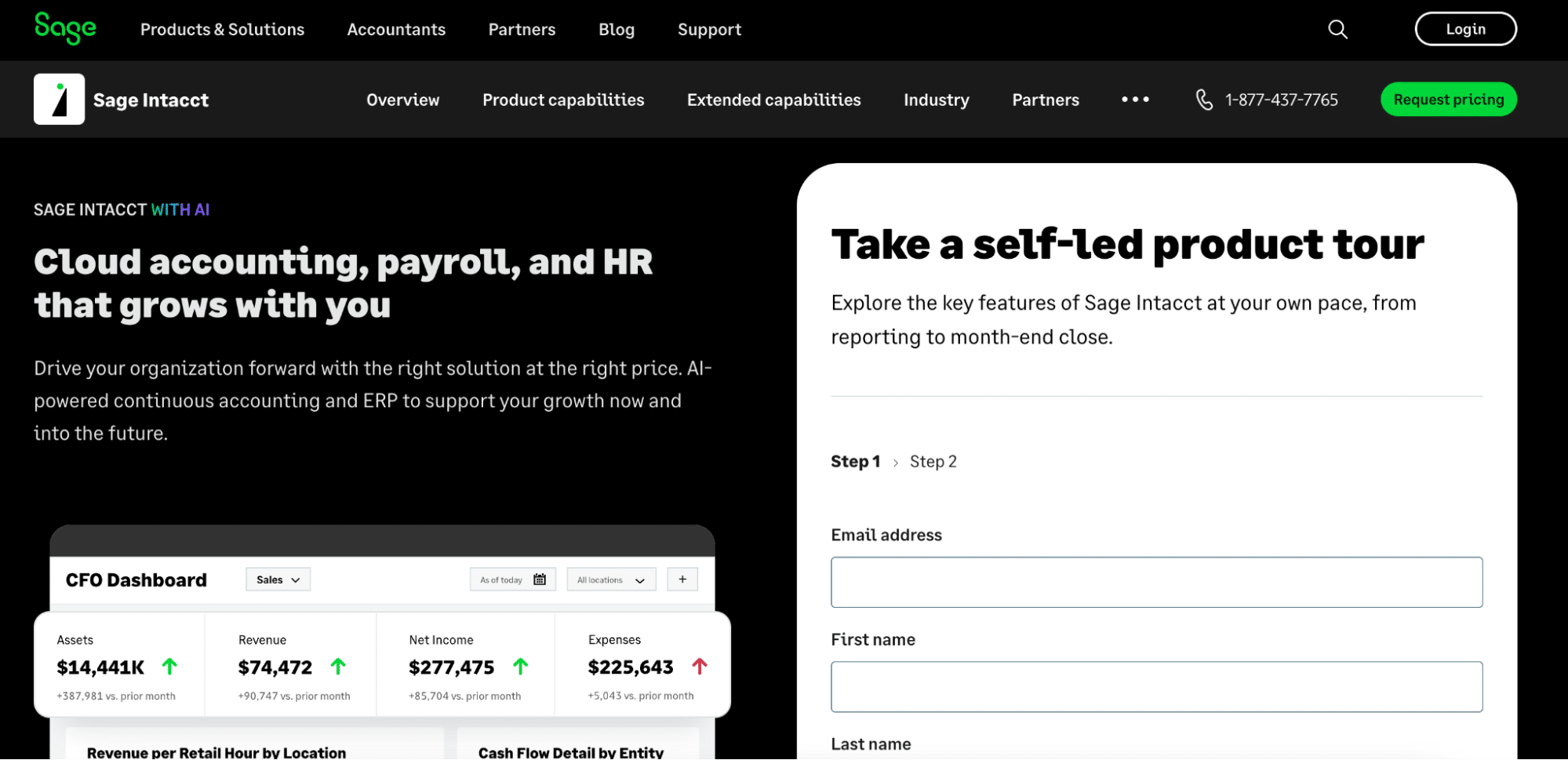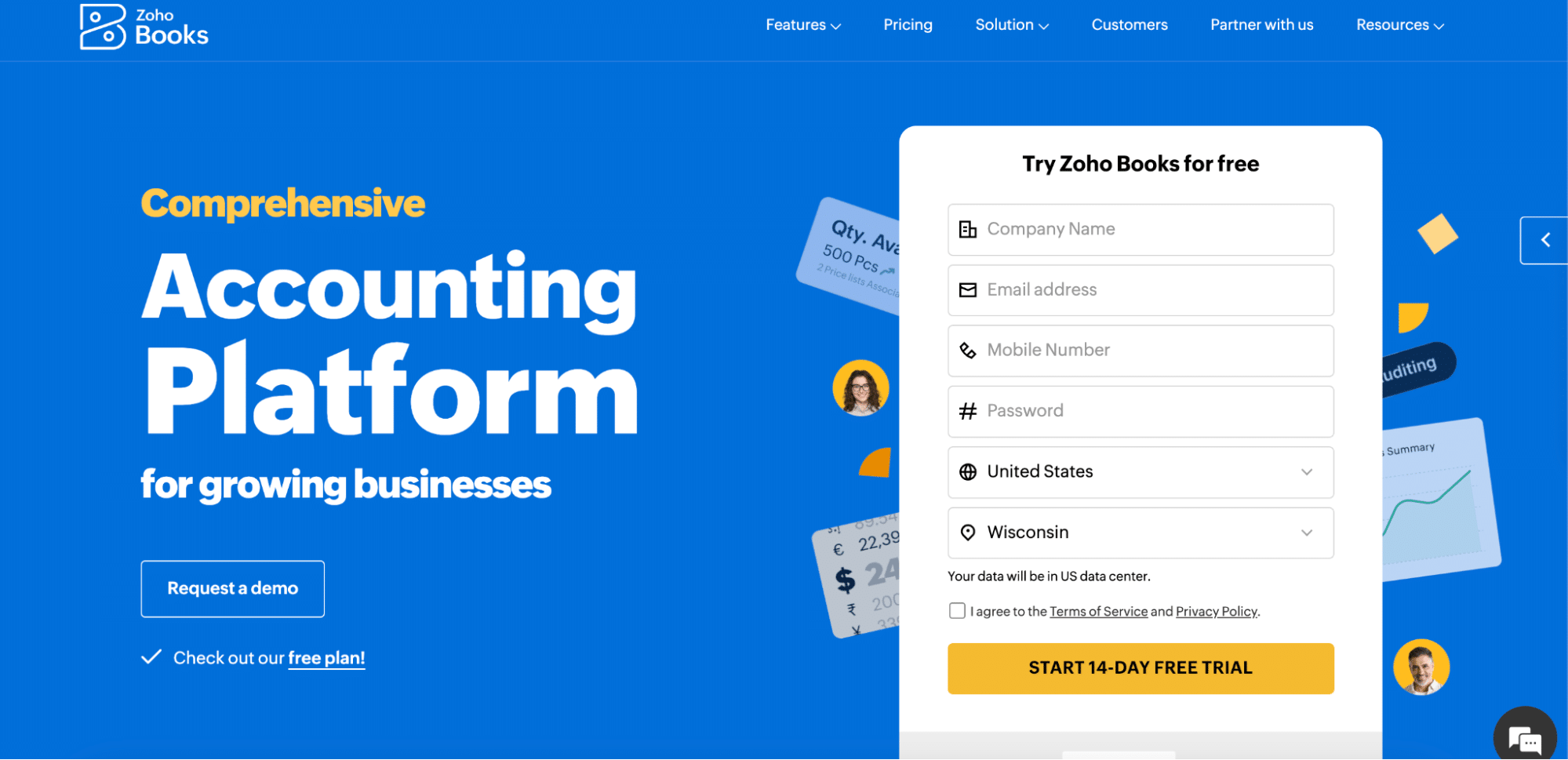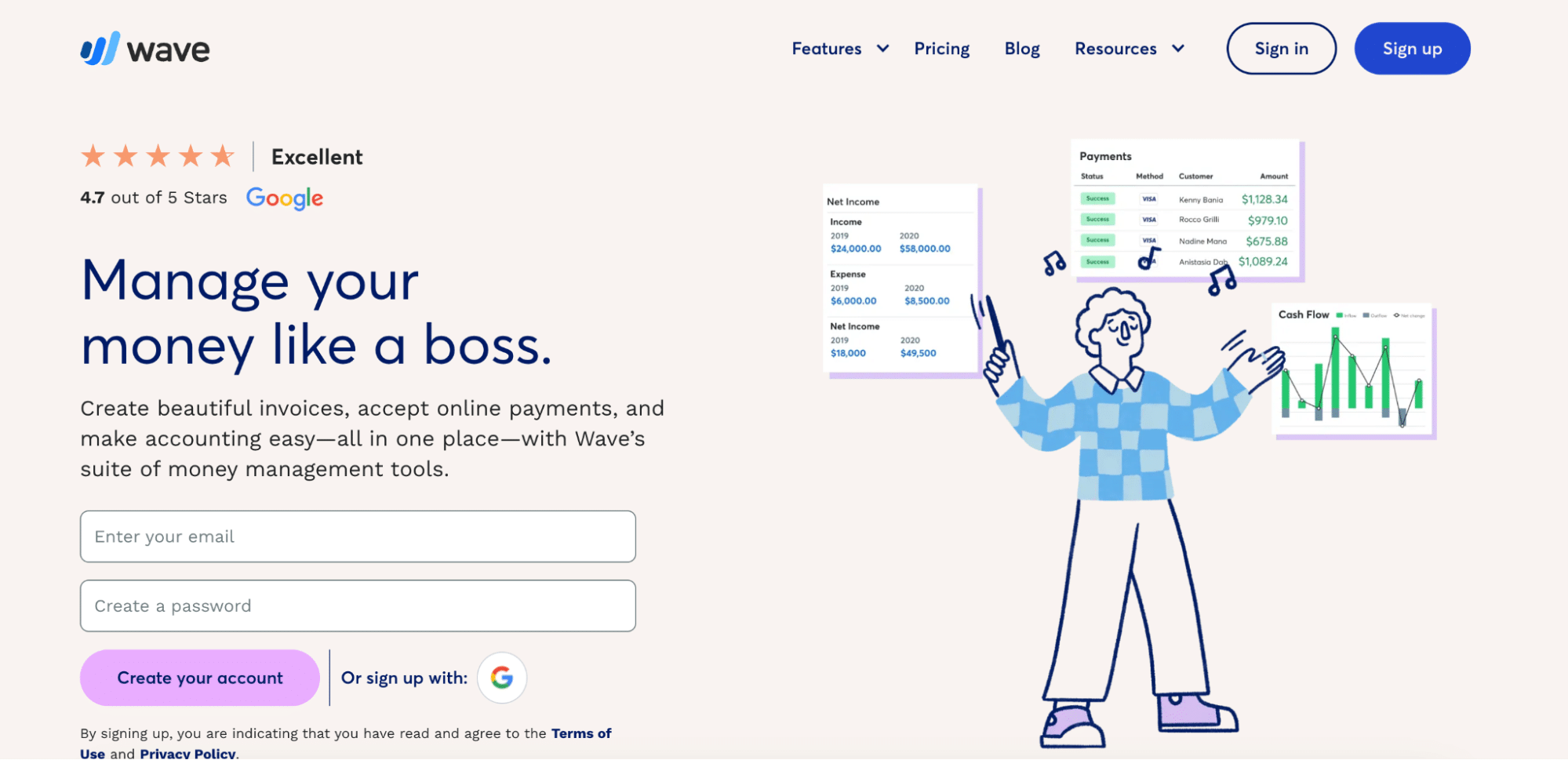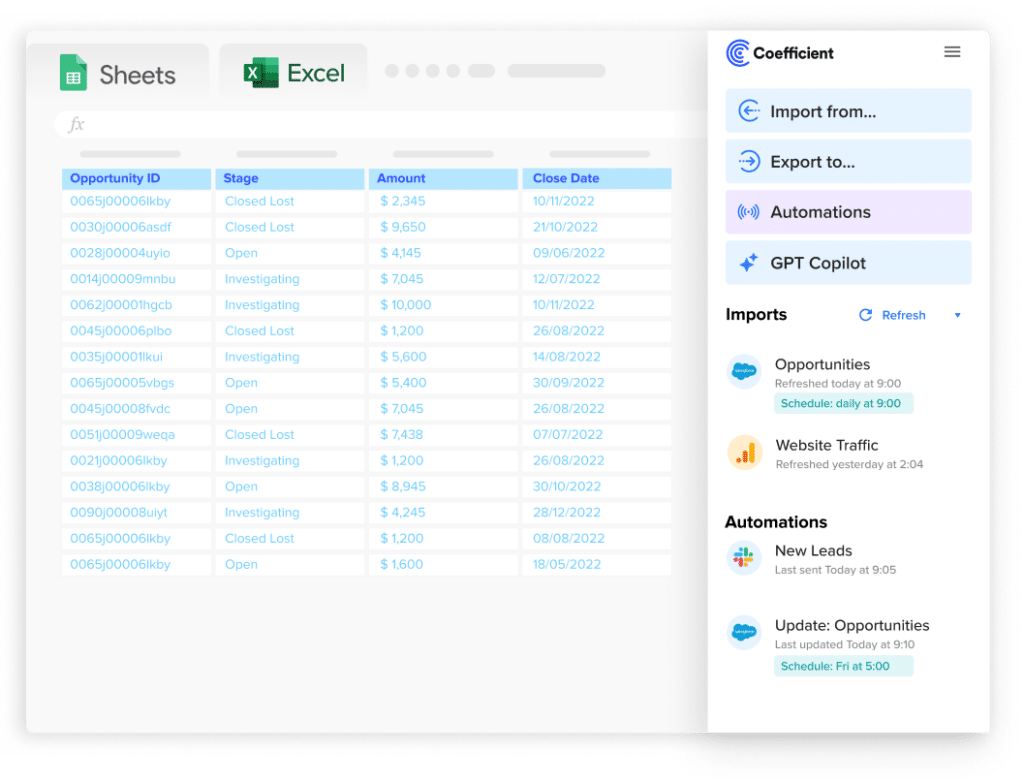Which ecommerce accounting software is best for your small business? This comprehensive guide compares the top solutions to help you choose the right fit for your needs, streamline operations, and improve financial accuracy.
#1 QuickBooks Online: Comprehensive Accounting for Small Ecommerce Businesses

QuickBooks Online is a widely-used accounting software designed for small businesses. It offers features tailored for ecommerce operations, including inventory management and sales tax automation. The platform integrates with many popular ecommerce platforms, making it a top choice for online sellers.
Highlights of QuickBooks Online
- Seamless integration with major ecommerce platforms
- Real-time inventory tracking and management
- Automated sales tax calculations and reporting
Pros
- QuickBooks Online scales with your business from startup to enterprise level, accommodating growth.
- The platform offers a wide range of add-ons and integrations, creating an extensive ecosystem.
- Users can manage finances on-the-go with a powerful mobile application.
Cons
- New users may find QuickBooks Online complex, with a significant learning curve.
- Higher-tier plans can be expensive for very small businesses.
- Some users may find the reporting options too rigid, with limited customization.
Pricing
- Simple Start: $35/month (1 user)
- Essentials: $65/month (3 users)
- Plus: $99/month (5 users)
- Advanced: $235/month (25 users)
Support
- Live customer support available by online chat and callback on weekdays during extended business hours and on Saturdays
- Advanced plan customers receive 24/7 customer support
- QuickBooks Care plans available for desktop versions, ranging from $29.95/month to $649/year for Pro Plus and $949/year for Premier Plus
#2 Xero: Cloud-Based Accounting with Unlimited Users

Xero is a cloud-based accounting solution designed for small businesses. It provides flexibility and collaboration features ideal for ecommerce operations. The platform’s intuitive interface and unlimited user access make it an excellent choice for growing teams.
Highlights of Xero
- Unlimited users on all plans
- Strong inventory management features
- Extensive third-party app integrations
Pros
- Xero allows easy collaboration with team members, accountants, and advisors.
- The platform features an intuitive interface with a gentle learning curve.
- Xero regularly updates with continuous improvements and new features.
Cons
- Some advanced reporting features require add-ons, limiting the basic offering.
- U.S.-based businesses may find Xero’s payroll features less robust than some competitors.
- Bank reconciliation can be slower on Xero compared to some other platforms.
Pricing
- Early: $15 USD per month
- Growing: $42 USD per month
- Established: $78 USD per month
Customer Support
Xero provides 24/7 online support, an extensive knowledge base, and community forums. Phone support is limited to accounting partners.
#3 Sage 50cloud: Robust Desktop Software with Cloud Capabilities

Sage 50cloud is an accounting software that combines desktop functionality with cloud access. It caters to small businesses, including ecommerce operations, that prefer a traditional accounting approach with modern features.
Highlights of Sage 50cloud
- Strong inventory management and job costing
- Microsoft Office 365 integration
- Detailed financial reporting and analysis tools
Pros
- Sage 50cloud offers advanced accounting capabilities out-of-the-box.
- The desktop-based system provides enhanced data security.
- Sage 50cloud offers tailored versions for different business types.
Cons
- Users without accounting experience may face a steep learning curve.
- Sage 50cloud requires a higher upfront cost compared to cloud-only solutions.
- Base plans typically allow fewer users than cloud-native competitors.
Pricing
- Pro: $44/month (1 user)
- Premium: $69/month (1-5 users)
- Quantum: Starting at $175/month (1-40 users)
Note: Prices based on annual subscription.
Customer Support
- Direct assistance: Phone, live chat, and email support
- Self-help resources: Knowledge base, FAQs, and community forums
- Sage University: Training and learning resources
- Expert booking: Option to schedule time with Sage specialists
#4 Zoho Books: Affordable Accounting for Growing Ecommerce Businesses

Zoho Books is an accounting software designed for small and growing businesses. It offers a cost-effective, feature-rich solution tailored for ecommerce operations. The platform integrates seamlessly with other Zoho products, creating a comprehensive business management ecosystem.
Highlights of Zoho Books
- Automated workflows and bank feeds
- Customizable invoices and estimates
- Multi-currency and multi-lingual support
Pros
- Zoho Books offers competitive pricing with feature-rich plans.
- The platform connects seamlessly with other Zoho apps and third-party tools.
- Zoho Books scales with your business from basic to advanced needs.
Cons
- Built-in payroll is only available in certain countries, limiting its use for some businesses.
- Some users may find the interface less intuitive than competitors.
- Advanced reporting features may require upgrades or add-ons.
Pricing
As of September 2024, ZohoBooks offers the following plans:
- Free plan available for businesses earning under $50K USD annually
- Standard: $15/month billed annually
- Professional: $40/month billed annually
- Premium: $60/month billed annually
- Elite: $120/month billed annually
- Ultimate: $240/month billed annually
Customer Support
- Classic Support (Free): Email support with 8 hour response time, available 24/5
- Premium Support: Email, live chat, phone, community forums, remote assistance. 3 hour response time, 24/5 availability. Costs 20% of license fee.
- Enterprise Support: Same channels as Premium, but with 1 hour response time and 24/7 availability. Costs 25% of license fee.
#5 Wave: Free Accounting Software for Small Ecommerce Businesses

Wave is a free, cloud-based accounting solution. It caters to very small ecommerce businesses or startups on a tight budget. Despite being free, Wave provides a robust set of features to manage basic accounting needs.
Highlights of Wave
- Completely free accounting, invoicing, and receipt scanning
- Unlimited income and expense tracking
- Basic inventory management
Pros
- Wave offers free accounting, invoicing, and receipt scanning features.
- The platform features an intuitive interface with a gentle learning curve.
- Wave allows unlimited invoicing, transactions, and users.
Cons
- Wave lacks some advanced features found in paid solutions.
- Payroll and payment processing require additional fees.
- Wave offers limited customer support options compared to paid alternatives.
Pricing
As of September 2024, Wave’s core accounting features are free. Wave Pro is offered for $16/month or $170/year.
Customer Support
- Help center and chatbot available 24/7 for all users
- Email and live chat support Monday-Friday 9am-4:45pm ET for paid users
- No phone support
Choose the Right Ecommerce Accounting Software for Your Business
Selecting the best accounting software for your small ecommerce business depends on your specific needs, budget, and growth plans. Consider factors like scalability, integration capabilities, and user-friendliness when making your decision. To streamline your financial reporting and gain deeper insights, consider using Coefficient to integrate your accounting data with the rest of your business data in Google Sheets or Excel.

Stop exporting data manually. Sync data from your business systems into Google Sheets or Excel with Coefficient and set it on a refresh schedule.
Get Started
Frequently Asked Questions
What features should I look for in ecommerce accounting software?
When choosing accounting software for your ecommerce business, look for features like inventory management, multi-channel sales tracking, automated tax calculations, and integration with popular ecommerce platforms. Coefficient can help you leverage these features by connecting your accounting data to powerful spreadsheet tools for enhanced analysis and reporting.
Is cloud-based or desktop accounting software better for ecommerce businesses?
Cloud-based solutions often offer better flexibility, real-time updates, and easier collaboration, making them ideal for many ecommerce businesses. However, desktop software may provide more advanced features and better security for some users. Consider your specific needs and preferences when choosing. Regardless of your choice, Coefficient can integrate with both cloud-based and desktop accounting solutions to enhance your reporting capabilities.
How can I automate my ecommerce accounting processes?
Automating your ecommerce accounting can save time and reduce errors. Look for software that offers features like automatic bank feeds, recurring invoices, and integration with your ecommerce platform. To further streamline your processes, use Coefficient to automate data syncing between your accounting software and spreadsheets, enabling real-time financial reporting and analysis.

